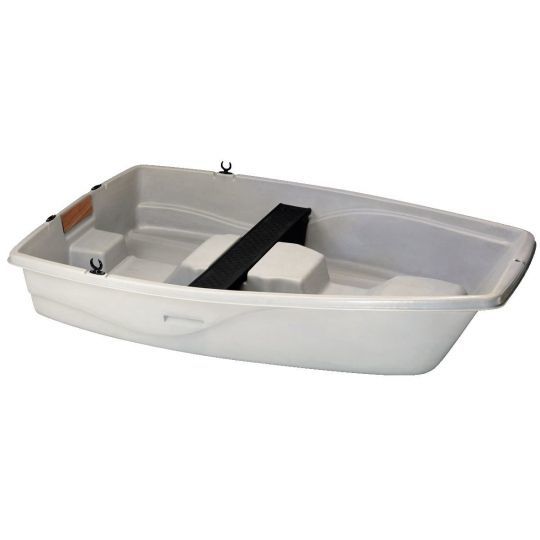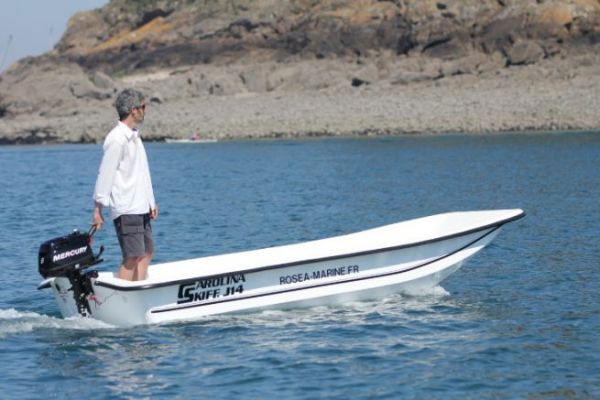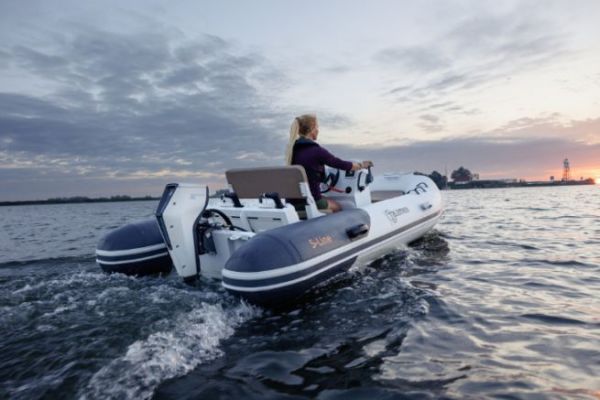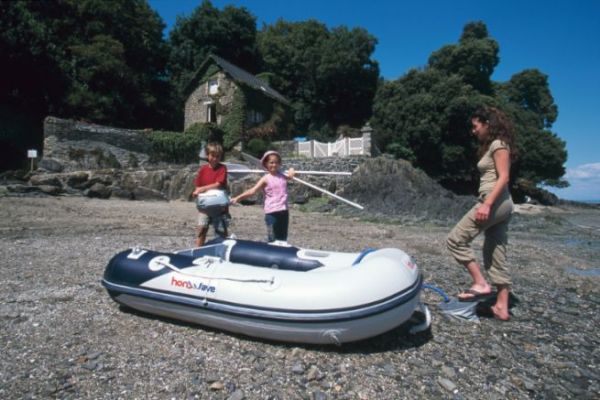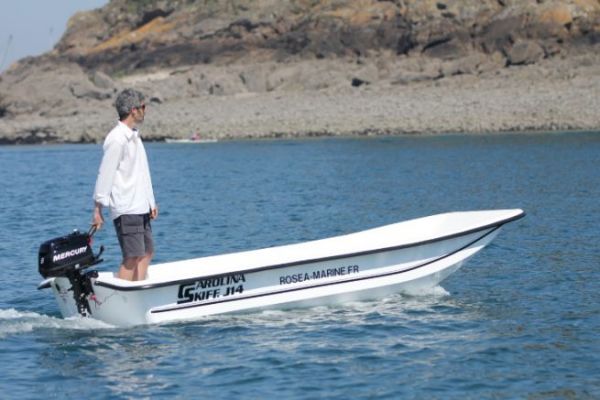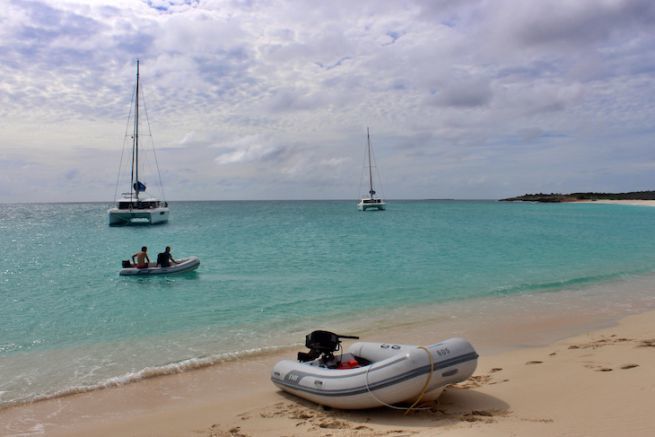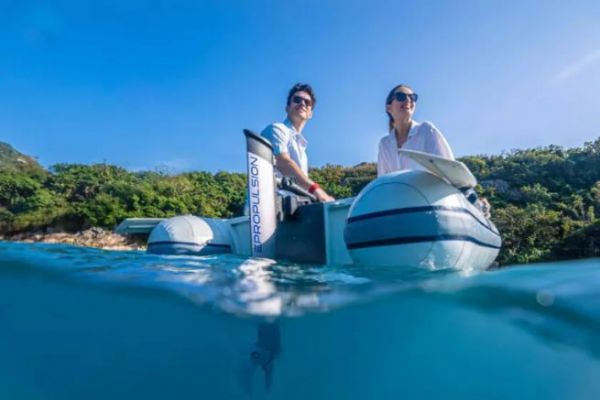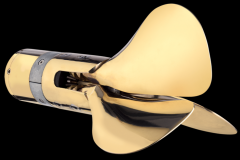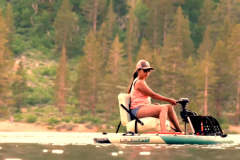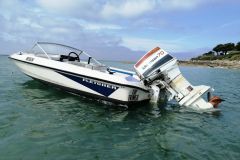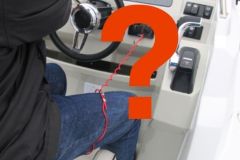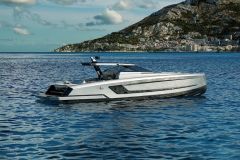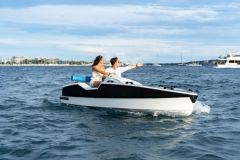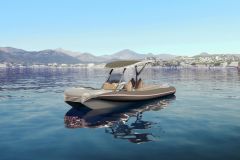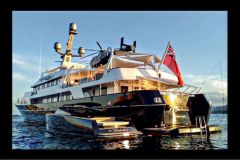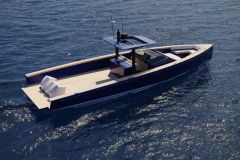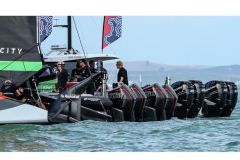The dinghy that stays at the mooring
For a dinghy that's simply used to reach your boat when it's at the mooring, a basic dinghy is more than enough. It should be easy to handle, sturdy enough to withstand the elements and, why not, have a wheel for easier launching. As for size, anything between 8 and 10 ft is more than sufficient, whether rigid or inflatable.
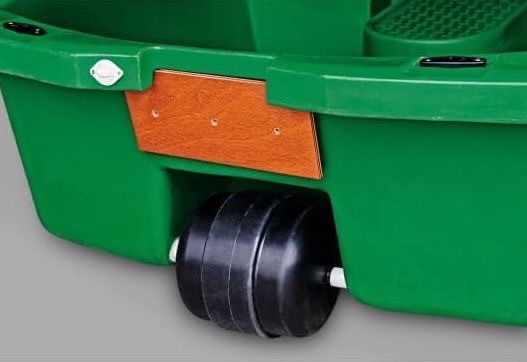
The tender that fits on the dedicated platform or hangs from the davits
In some cases, the size of the dinghy will first be defined by its location on the boat. So you need to know where you're going to store the tender. Will it be on the frontdeck, hanging from davits, on a platform or in a dedicated garage? In any case, you need to know the maximum size allocated to this tender, and in 90% of cases this will define the size of your future tender.
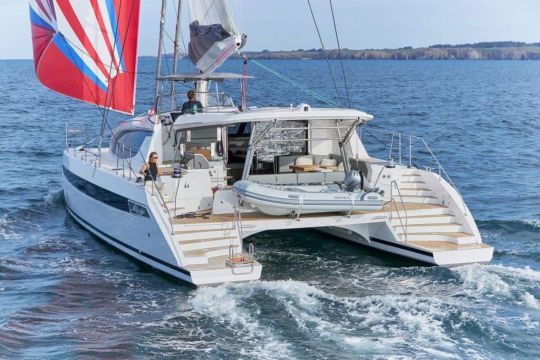
Lastly, you can decide to tow it behind the boat, but in this case be careful not to choose a model that's too big, which would handicap the main boat in its maneuvers, or, on the contrary, a model that's too light, which could flip over.
The dinghy that lets you explore the surrounding area
The dinghy you use to explore the surrounding area needs to be of a minimum size to be able to withstand a little chop without endangering its occupants. Therefore, it's best to choose the maximum size allowed for your boat, and if possible over 11 or 12 ft.
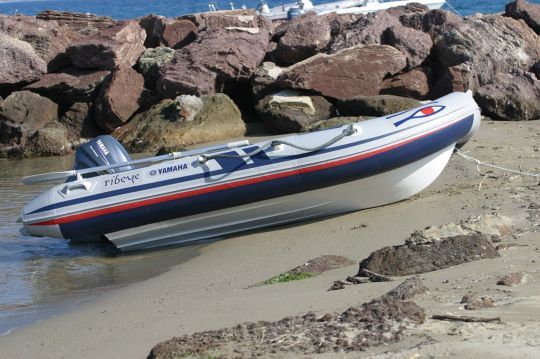
The tender that will allow you to transport people or equipment
For larger units, the concern is often to find a tender that can carry as many people as possible, or as much equipment or food as possible. In the case of a large cabin cruiser or yacht, you also want a good level of comfort and shelter from the elements. In this case, the tender often exceeds 5 or 6 meters.
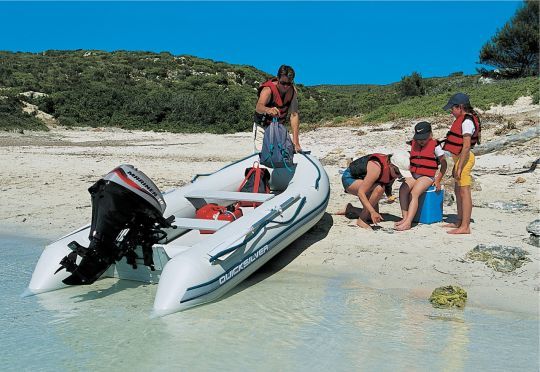
The tender that fits your budget
Last but not least, budget is an important consideration. For many yachtsmen, a tender is considered a necessary evil, and the least expensive model is preferred. However, beware of the temptation of the cheap dinghy. Like any good tool, a dinghy must be durable and meet your needs. So look for the right balance between attractive price and quality.
